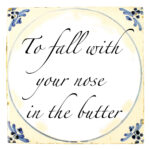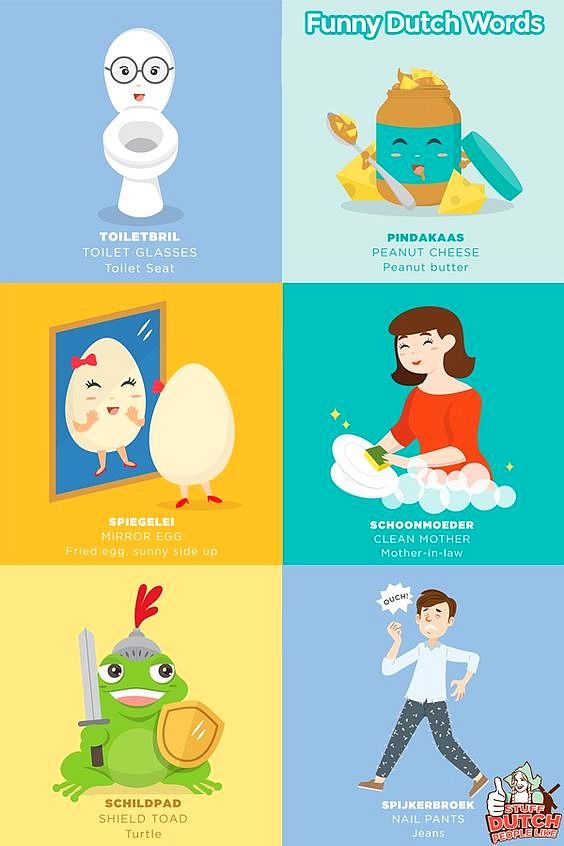Funny French Expressions Lost in Translation. A guide to understanding some French expressions, whose literal translation can be hilarious.
When you think of France and the French language, love and romance are the first words that come to mind…until you start learning the language at a more advanced level.
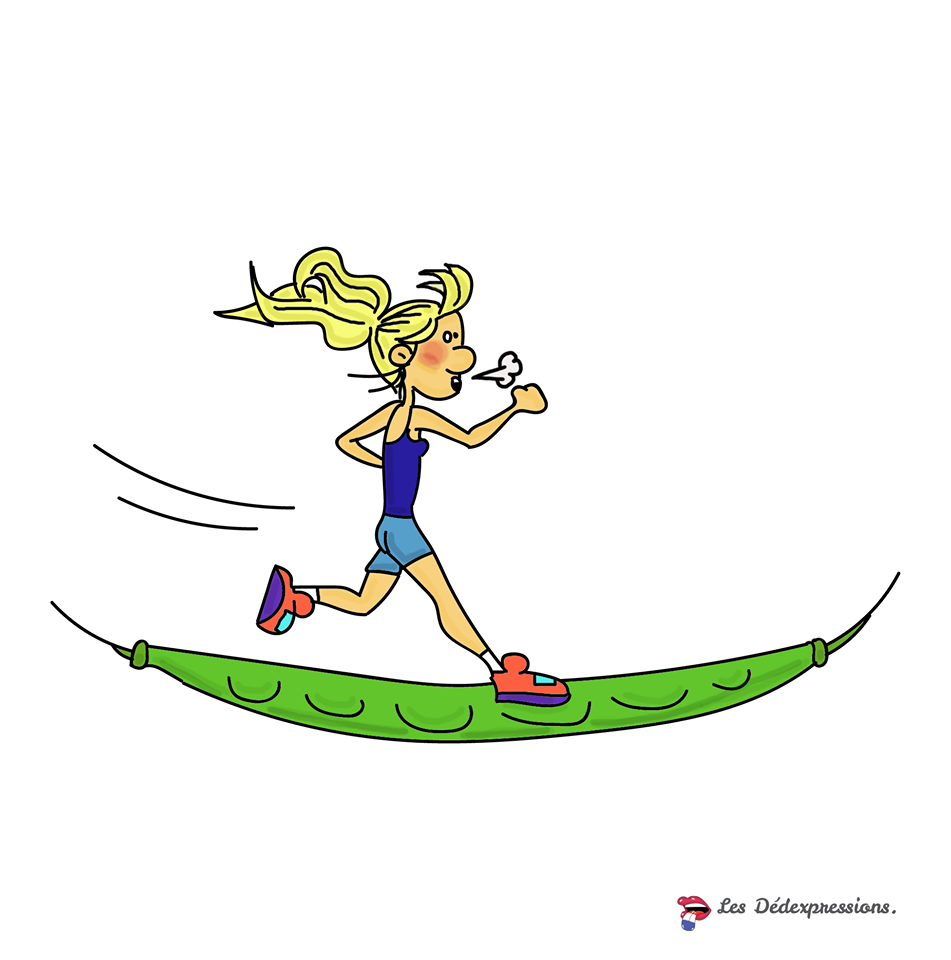
Certain everyday expressions can sound sometimes a little bit crude, while others can be very imaginative.
Here is a guide to understanding some French expressions, whose literal translation can be very creative and funny.
Let’s start!
Il me court sur le haricot
“He’s running on my bean”, meaning he’s getting on my nerves. The “bean” corresponds in slang to a “toe”. Running on the toes can actually be very annoying.
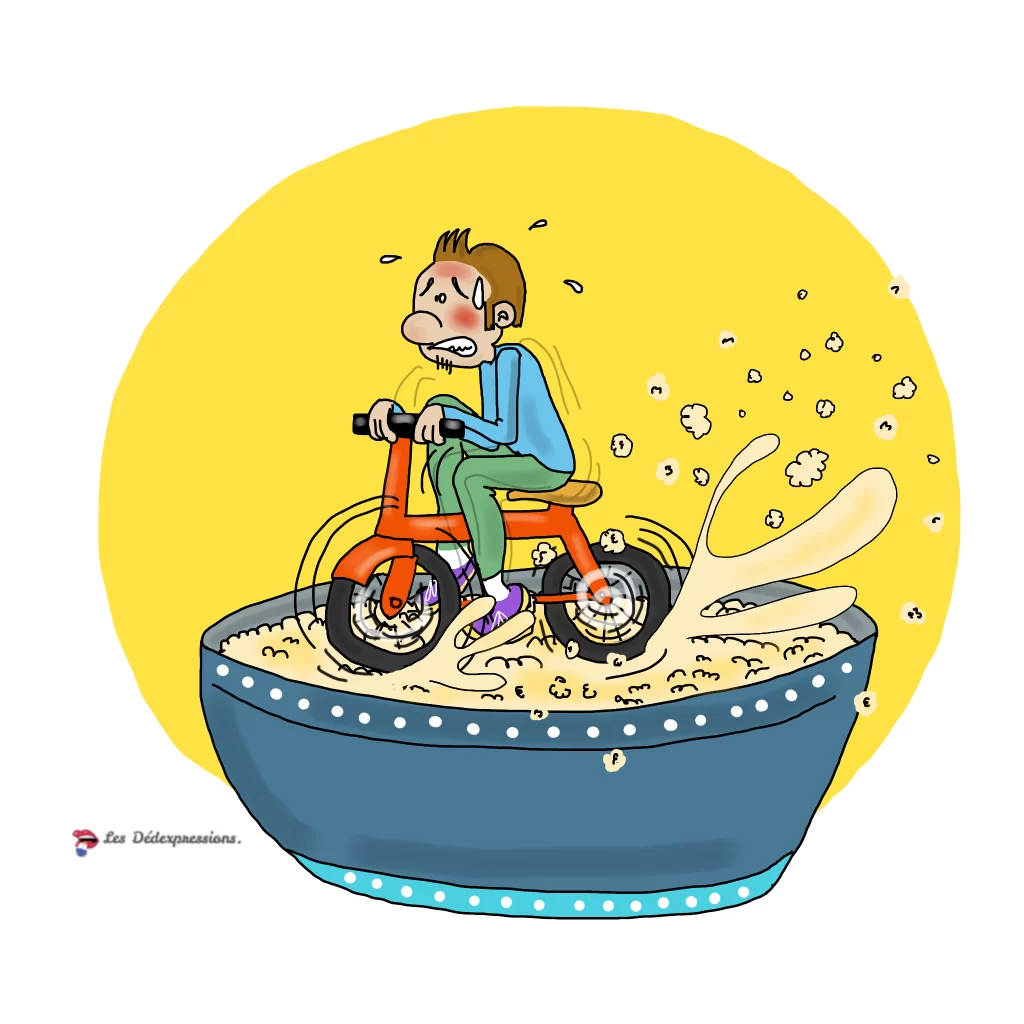
Pédaler dans la semoule
“To pedal in semolina“, to get nowhere fast, as to say to go around in circles.
It is a metaphor that compares our difficulty in getting ourselves out of trouble to the difficulty of a cyclist if he had to move forward in trouble.
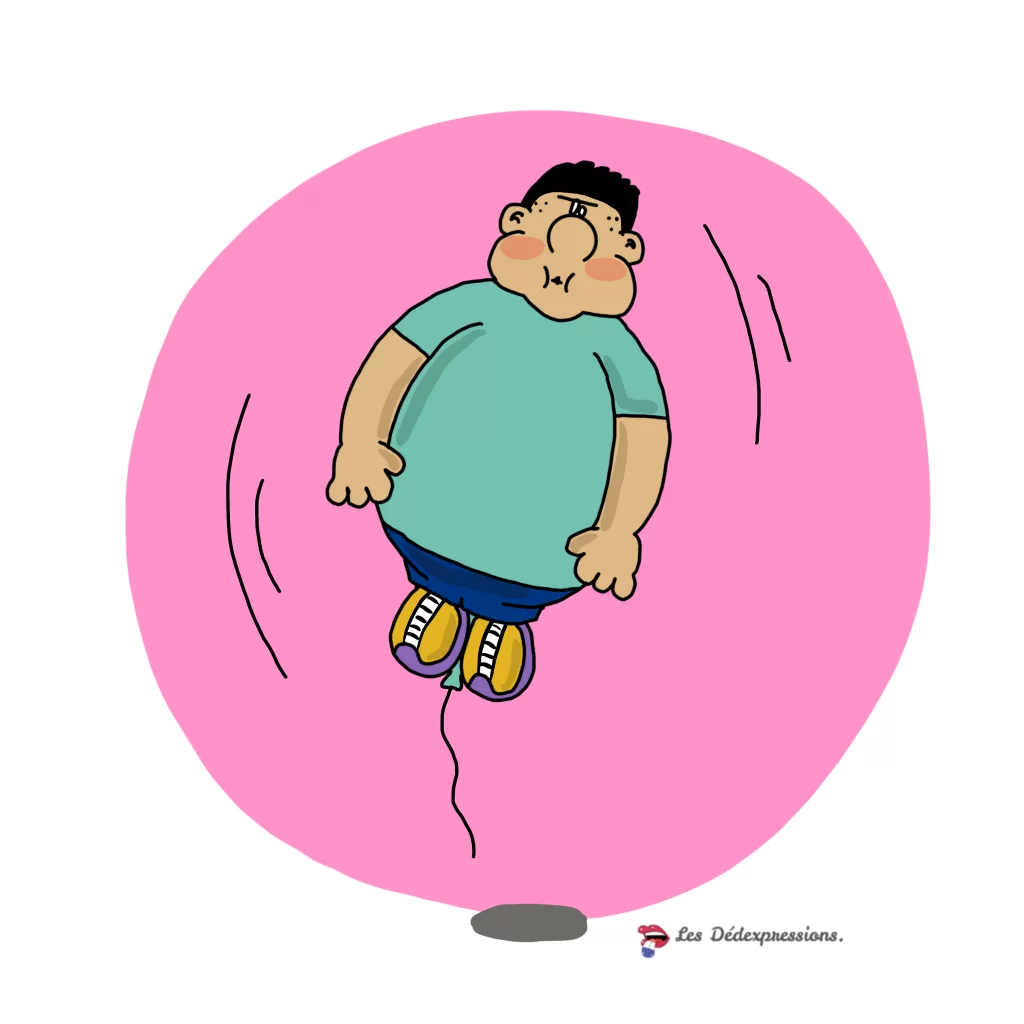
Ça me gonfle
“It blows me up” to say “this is annoying me”. We are talking here about testicles (or roubignolles, coucougnettes), in any case of the same caliber as the expression “breaking the balls”.
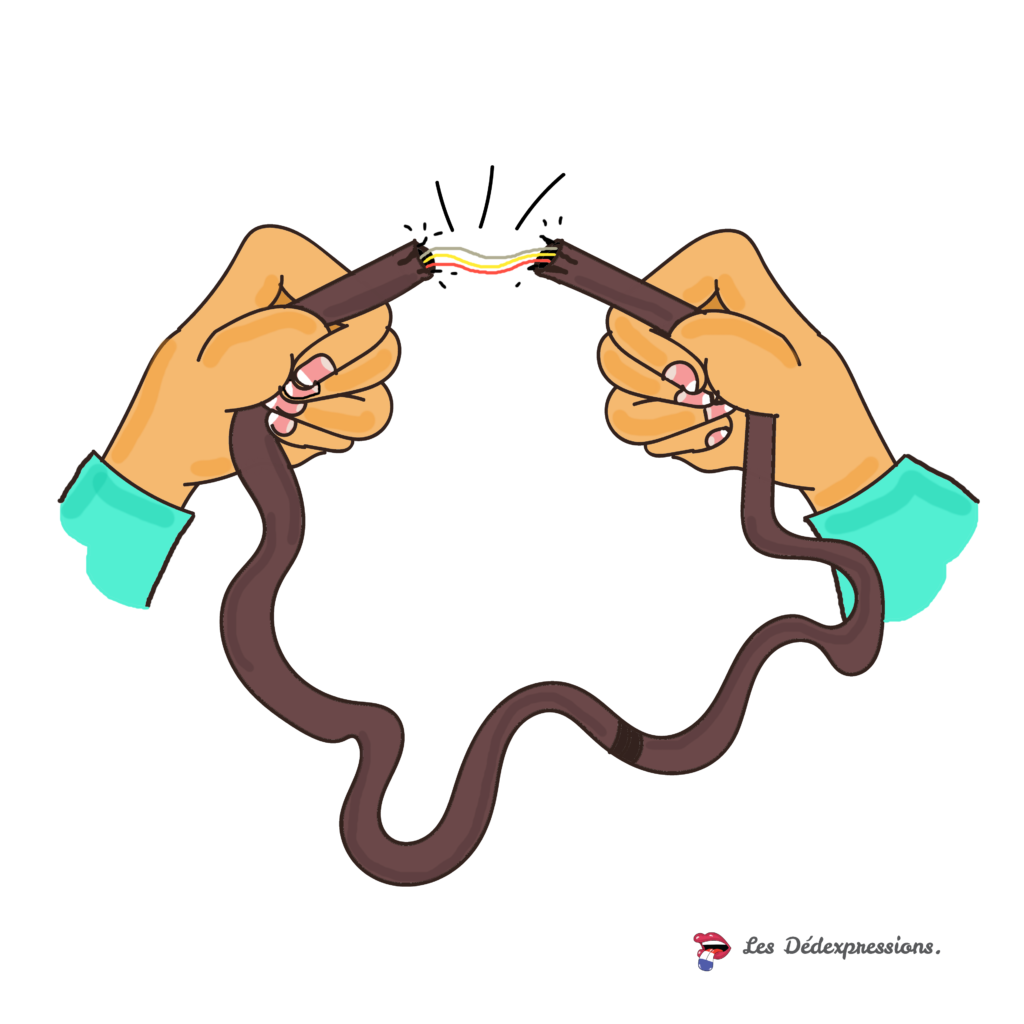
Péter un câble or Péter un plomb
The French don’t “go off the rails”, they “break a cable or a fuse”. When the pellets overheat, following too much electrical intensity, they “fart” and break down. The expression thus illustrates a sudden nervousness, of such intensity that the reaction is unexpected and disproportionate.
Ne pas y aller de main morte
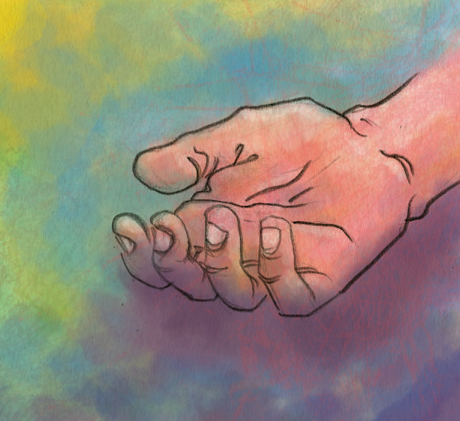
Literally, “don’t go with a dead hand“, when a person does an action with a lot of energy. The “dead hand” symbolizes a powerless hand, thus an action is carried out dynamically, even violently.
The French have many more expressions related to the parts of the body.
Here are the most commonly used.
Ça me fait une belle jambe
“It gives me a beautiful leg“, not to care or couldn’t care less. The English equivalent would be “a fat lot of good that will do me”. In the 17th century, it was synonymous with coquetry and refinement for men to wear stockings. The custom has become ridiculous and in the 19th century, this expression refers to the lack of interest that men showed in the shape of their legs.
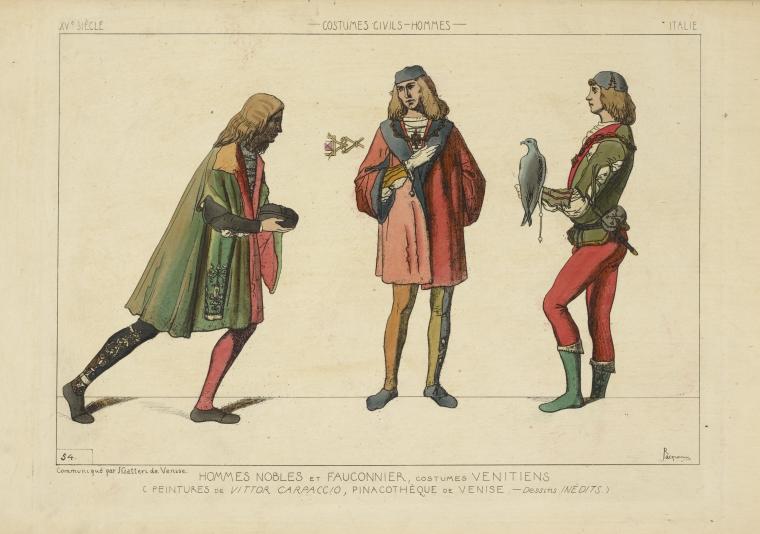
Avoir les jambes en coton
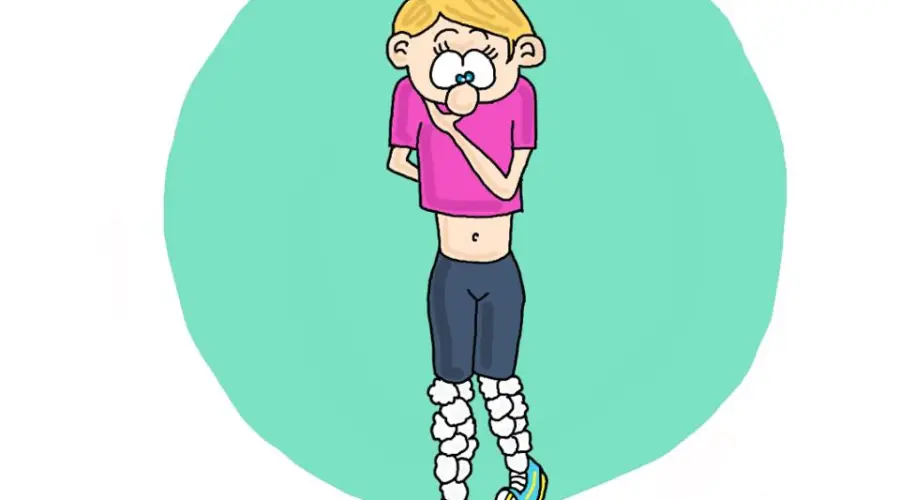
“To have cotton legs” is another French expression related to the legs. It dates back to the mid-19th century and was created by Stendhal in his book “the Charteuse de Parme”. It is simply a sign of discomfort, a state of temporary fatigue leading to low energy and cotton legs cannot support someone.
Avoir les chevilles qui enflent
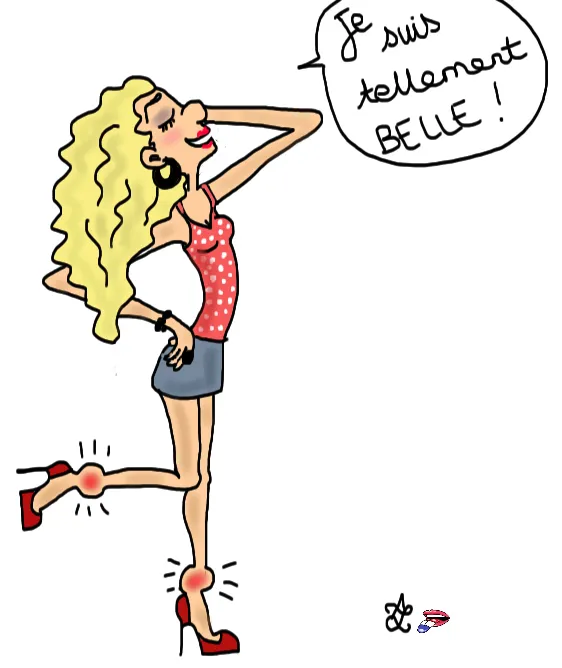
Going down to the ankles, “to have swollen ankles” means to be pretentious. This expression is said to be based on a play on words about Oedipus, whose name in Greek means “swollen foot,” and is known to be someone very confident. This confident man was always so sure of his judgments that he would never question them.
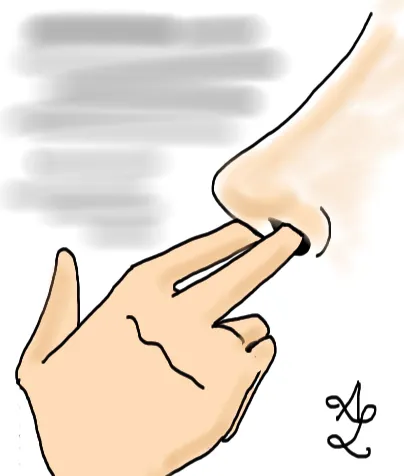
Les doigts dans le nez
“Fingers in the nose” to give the idea of achieving something without difficulty and without effort. An English would say “with one hand tied behind your back” or “a piece of cake”. Curiously, this expression dates back to 1912 in horse racing when the jockey arrived first with his fingers up his nose.
Tirer les vers du nez
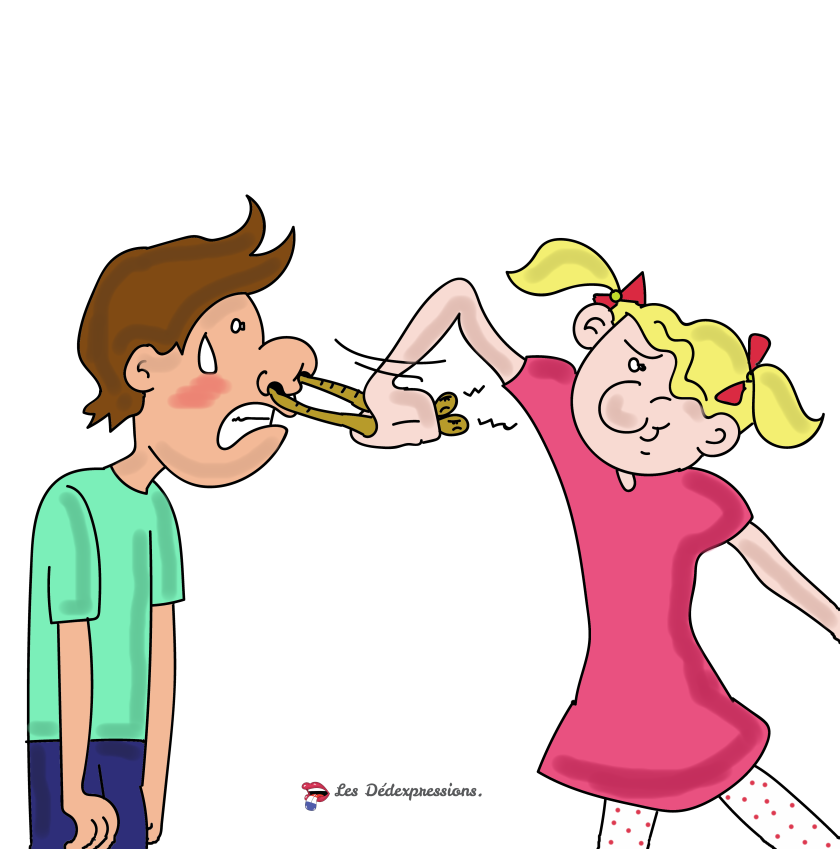
Another ancient expression “nose-related” dating back to the 15th century, it can be translated as “pull the worms out of the nose“, skillfully extracting someone’s secrets. At that time there was a disease called in French “vers rinaires”, a common parasite that was staying in the nose. People were ashamed of telling it to their doctor. The medical practitioner had to interrogate the patient to make him/her confess, it was said that the doctor was “pulling the worms out of the noses” to the patient.
Se mettre le doigt dans l’oeil
Literally, “put your finger in the eye“. It is when a person is being grossly mistaken coming from the idea of someone who is wrongly doing the sign of the cross by putting his finger in his eye.
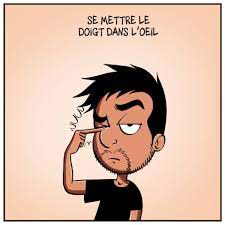
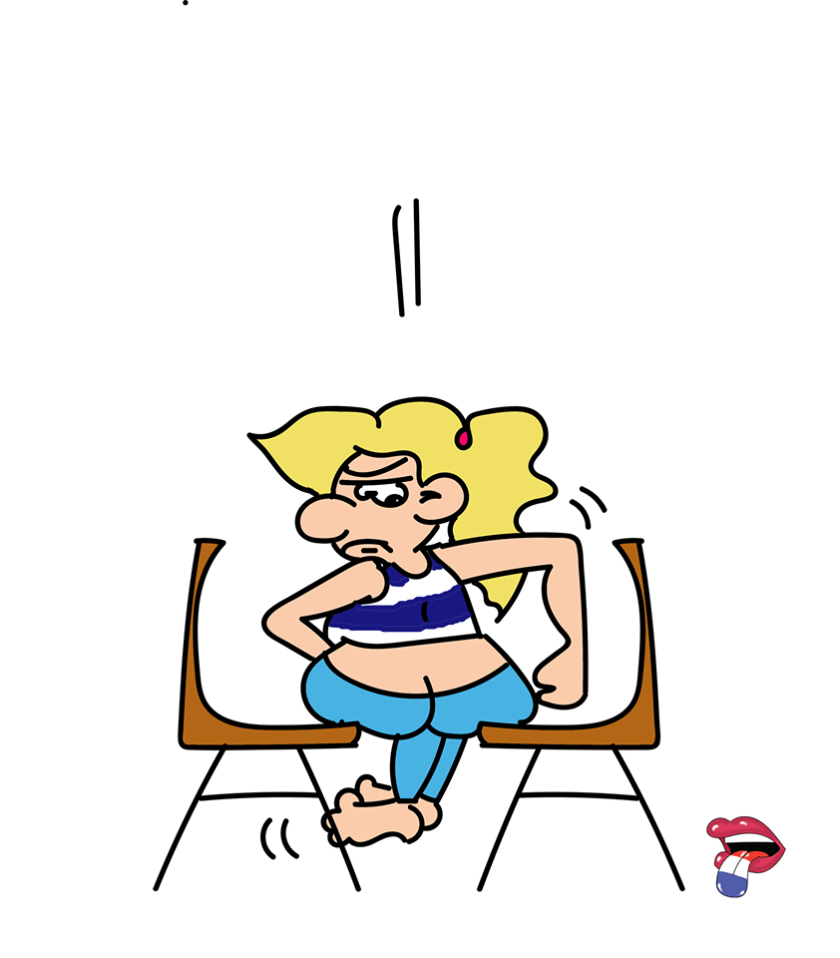
Less sofisticated expressions include another part of the body and French have many ways of referring to it!
Avoir le cul entre deux chaises
“Having the ass between two chairs”, being torn between two situations, since sitting between two chairs can actually be quite discomforting.
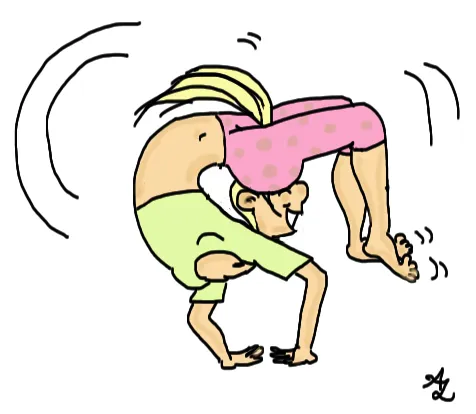
Avoir la tête dans le cul
The French are not “tired”, they have “their head up their ass”. In English you would say “to feel like shit” or “to get up on the wrong side of the bed”
Péter plus haut que son cul
This is another expression “ass-related”, whose literal translation is “farting higher than your ass” to tell that someone is “big-headed”, i.e. when a person acts in a pretentious way and feels very important.
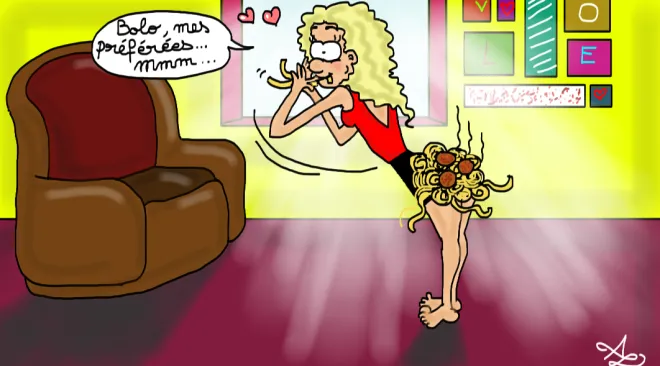
Avoir le cul bordé de nouilles
This colourful expression can be translated as “to have the ass surrounded by noodles“, meaning to be very lucky, “to have the luck of the devil”.
Avoir un pet de travers
Still related to the same part of the body, the literal translation is to “have a crooked fart“, meaning that “you’re farting sideways” to tell you that you’re grumpy”.
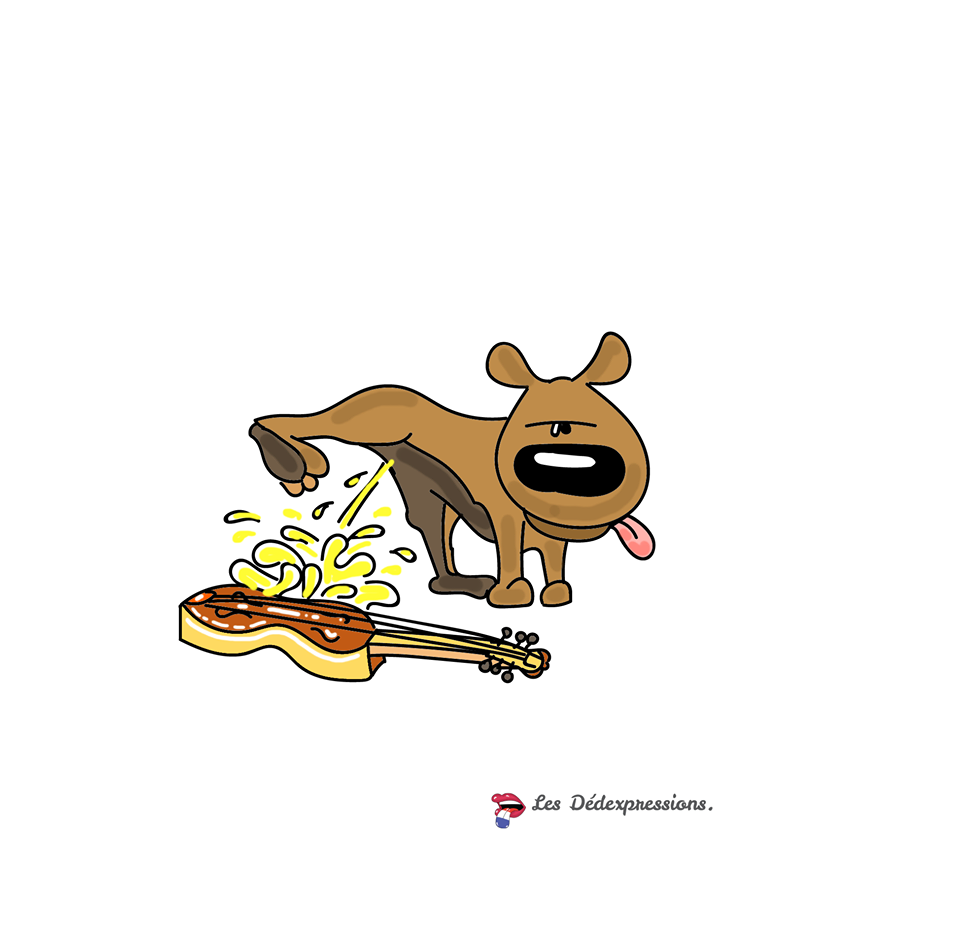
Pisser dans un violon
Still body-related, the French say “piss in a violin” as to say “waste your breath, talk to a wall”.
They think, in fact, that the action or speech is useless and has no efficiency since peeing in a violin won’t produce anything. In English you would say “to piss in the wind”, which is also very figurative!
S’en foutre comme de sa première chemise
With another “colourful” expression, the French don’t tell you that “they don’t care”, they tell you that “they care about it like they care about their very first shirt”.
And being the country of fashion, they have many more expressions related to clothes and fabric, such as…
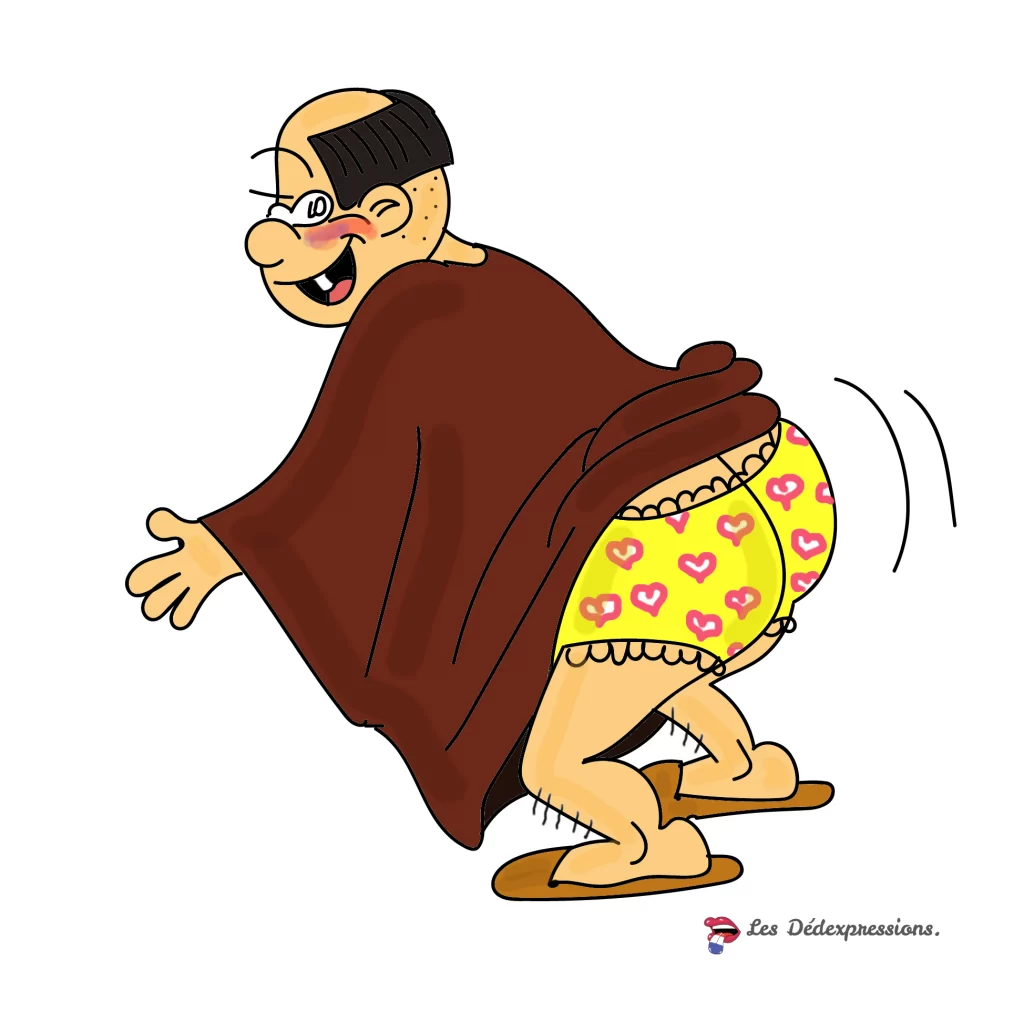
L’habit ne fait pas le moine
This expression is a common one in romance languages such as Italian and Spanish. It literally translates to “clothes don’t make the monk“, to say that appearances can be deceiving. The English equivalent wouldn’t be so specific: “the suit doesn’t make the man” or “don’t judge a book by its cover”. It is an old proverb of which we find the first traces in the 13th century meaning that wearing religious clothes won’t make you a religious person.
Être dans de beaux draps
“To be in beautiful sheets“, curiously meaning “to be in a bad situation”. This expression dates back to the Middle Ages, when sheets designated clothes. As a form of penance or to show one’s guilt, you had to dress in white, as symbol of purity and innocence, that was supposed to bring out what was “black” in us. In this outfit, one must have felt ashamed and accused of lust. In the past, it was also customary to say: “to be in beautiful white sheets”. Today the qualifier “white” has disappeared, but the meaning of the expression has not changed.
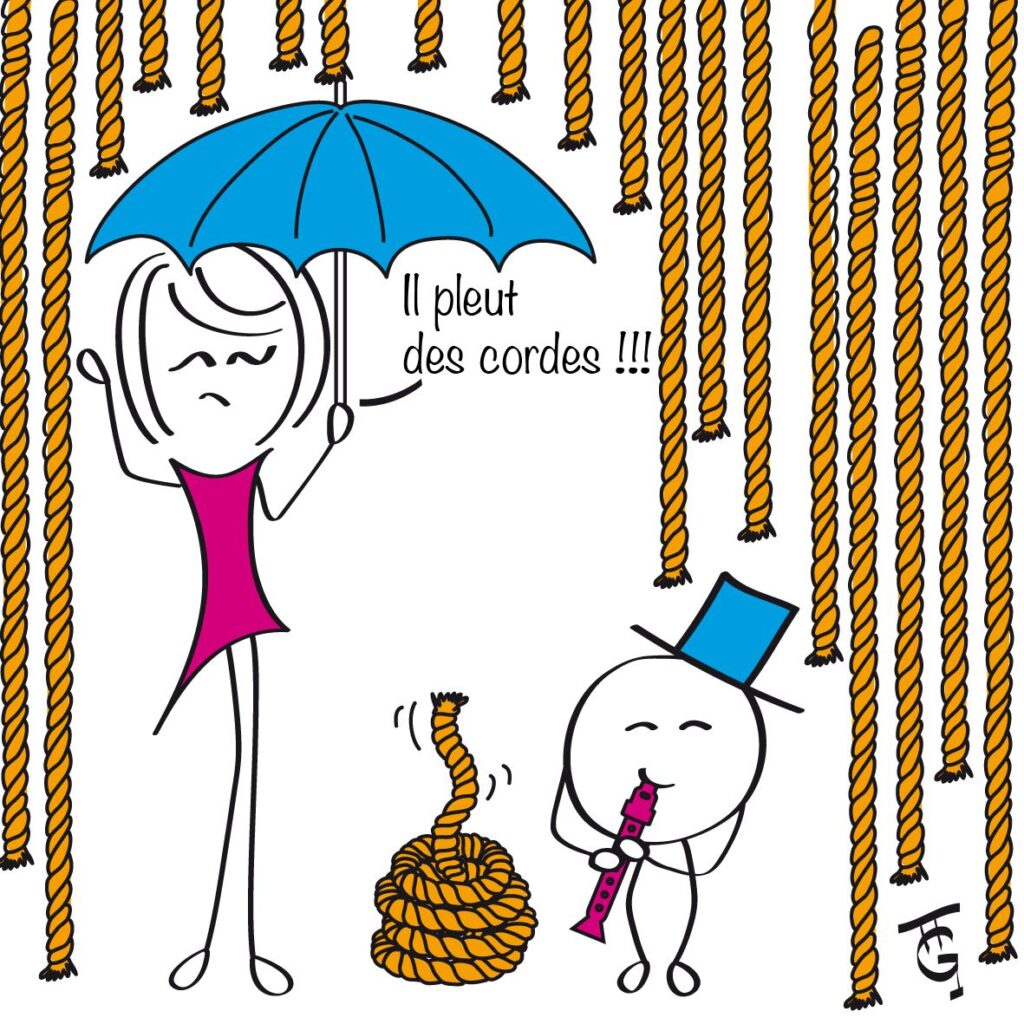
Il pleut des cordes
“It’s raining ropes“- It’s raining a lot. It’s raining cats and dogs. Also very funny!
When you think of France, the second thing that comes to mind after fashion is food and of course the French have thousand expressions related to food. Here are the funniest.
Ne pas être dans son assiette
Literally, “not being on your plate“, meaning to be in a bad mood or not feeling well. In this case, the plate refers to the physical disposition of a thing or a person or its state of mind.
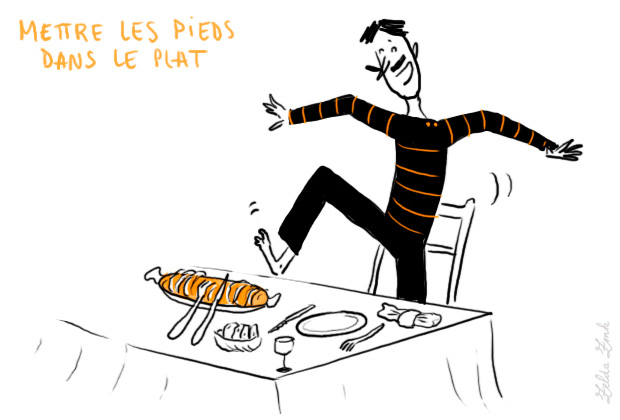
Mettre les pieds dans le plat
Again something to do with the feet; the literal translation is “feet in the dish” and it is used when someone clumsily approached a subject to be avoided without realizing it. It is a visual expression, if you put your feet in the dish it would be a silly mistake.
Prendre de la bouteille
Passing on to the bottle, literally “take from the bottle“, when someone starts to age, gain experience, meaning the person became better. It comes obvioulsy from the wine industry, in reference to alcohol that ages in the bottle and gets better.
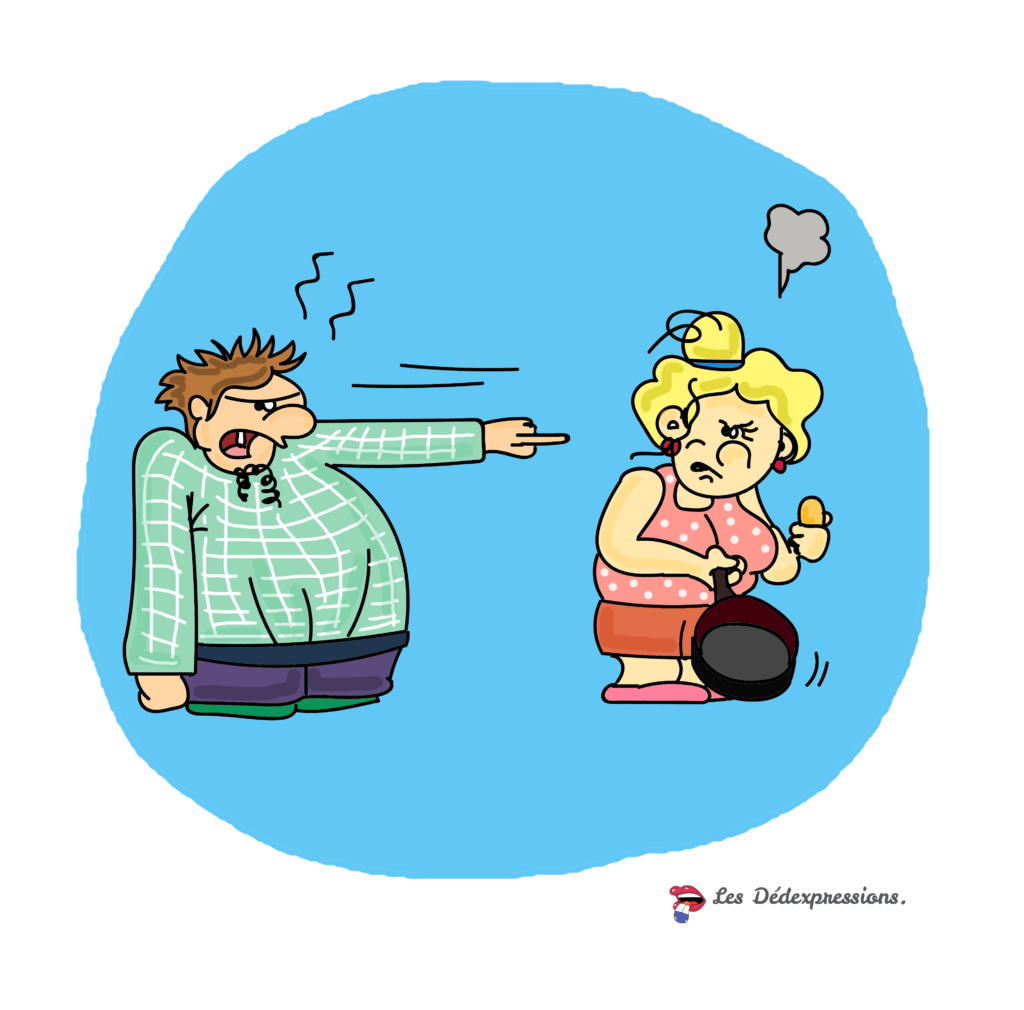
Aller se faire cuire un œuf
A funny French way to tell to “leave me alone”, as they tell you to “go and cook yourself an egg”. Funny story: the kitchen used to be the wife’s domain. The husband tended to criticize; in such a case, the wife would encourage him to cook an egg, reminding him that he did not know how to cook. The wife therefore obtained peace.
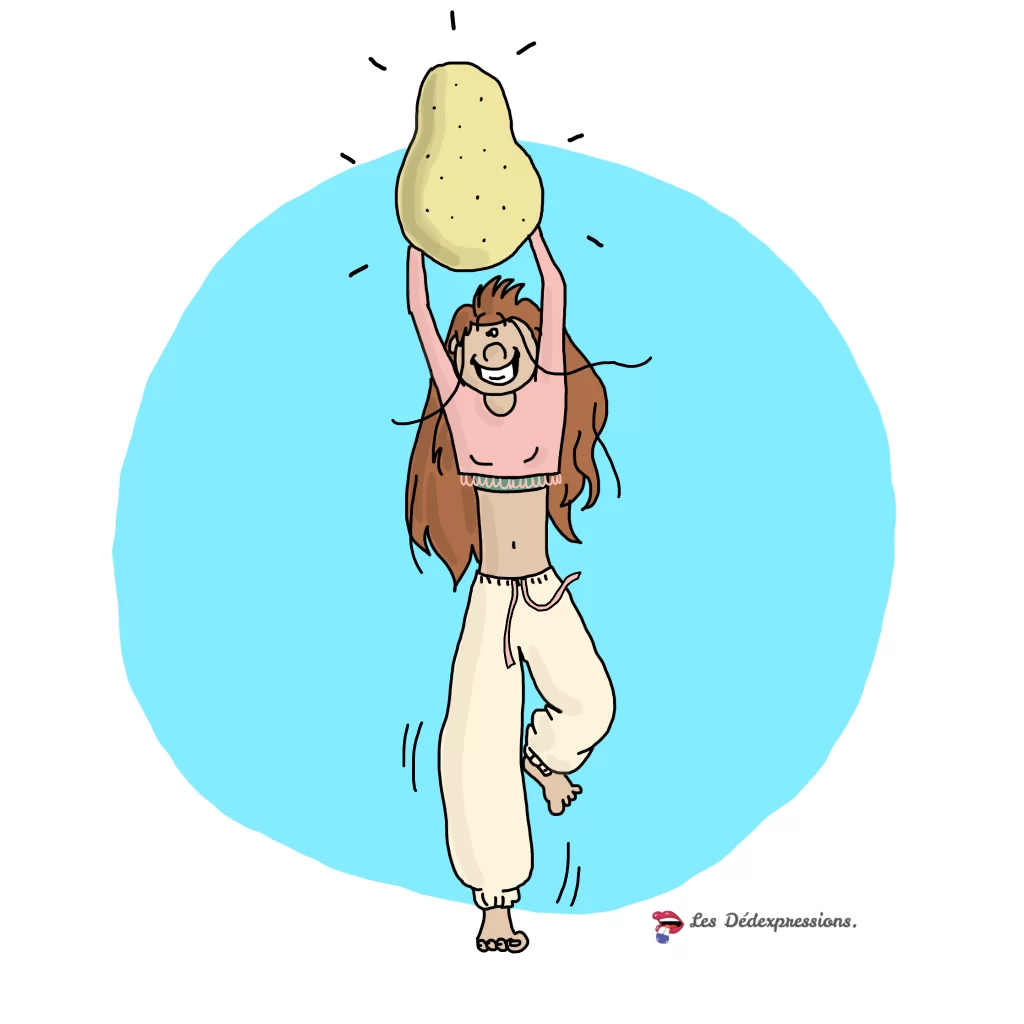
Avoir la patate/la frite
The French are not “in top form“, they have “the potato” or the “French fry”. Similar are “avoir la pêche” and “avoir la banane”. Apparently they use this expression because the one who is in good shape has a good ‘potato’ and that by going through a form like “he has a sacred potato” we arrived at the final diction.
Occupe-toi de tes oignons
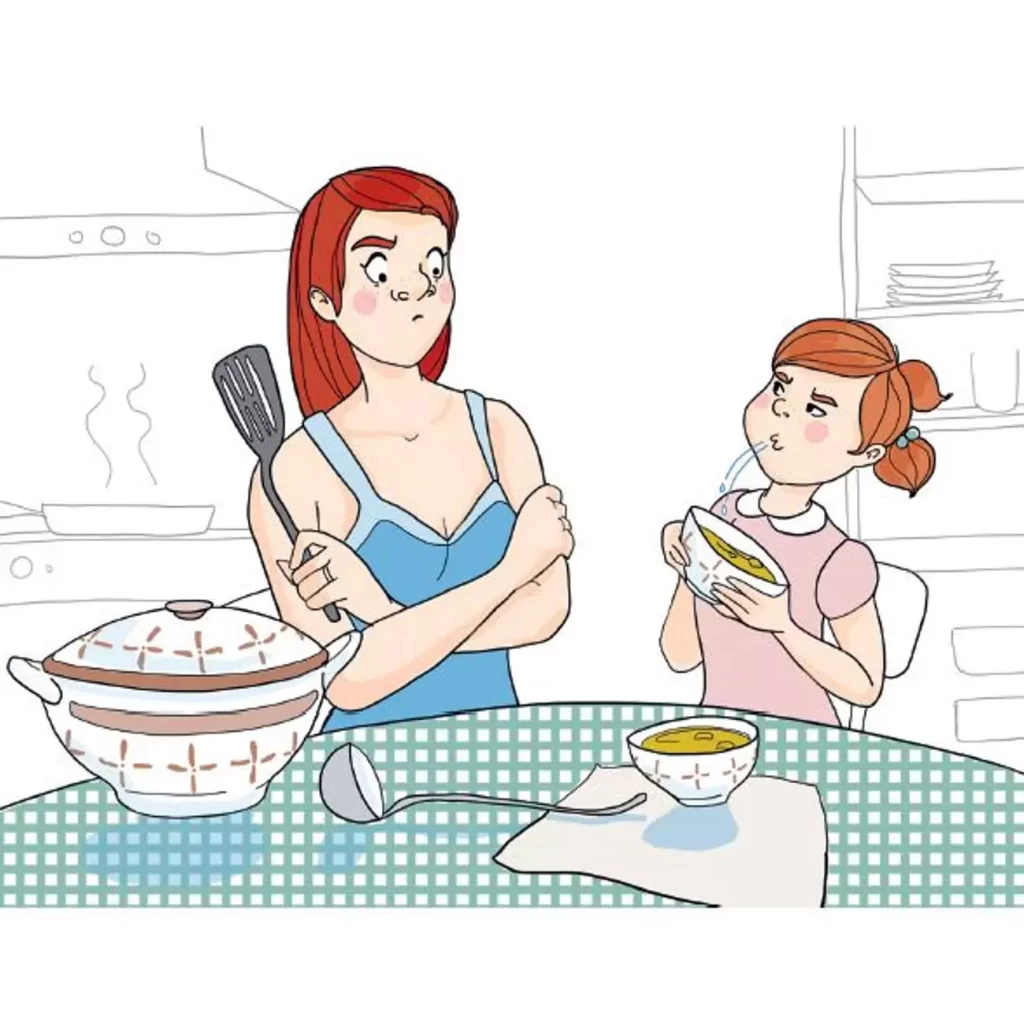
The French tell you to “mind your onions ” when they want you “to mind your own business” and when someone does an action with a lot of care, with a lot of attention they do it “aux petits oignons“, with small onions, because when you cook a dish, you might add onions to make it better.
Cracher dans la soupe
Talking about onion soups, this translates literally to “spit in the soup“, as in the past, the soup was considered an essential dish, spitting in it meant refusing something that was perceived as beneficial, thus being ungrateful.
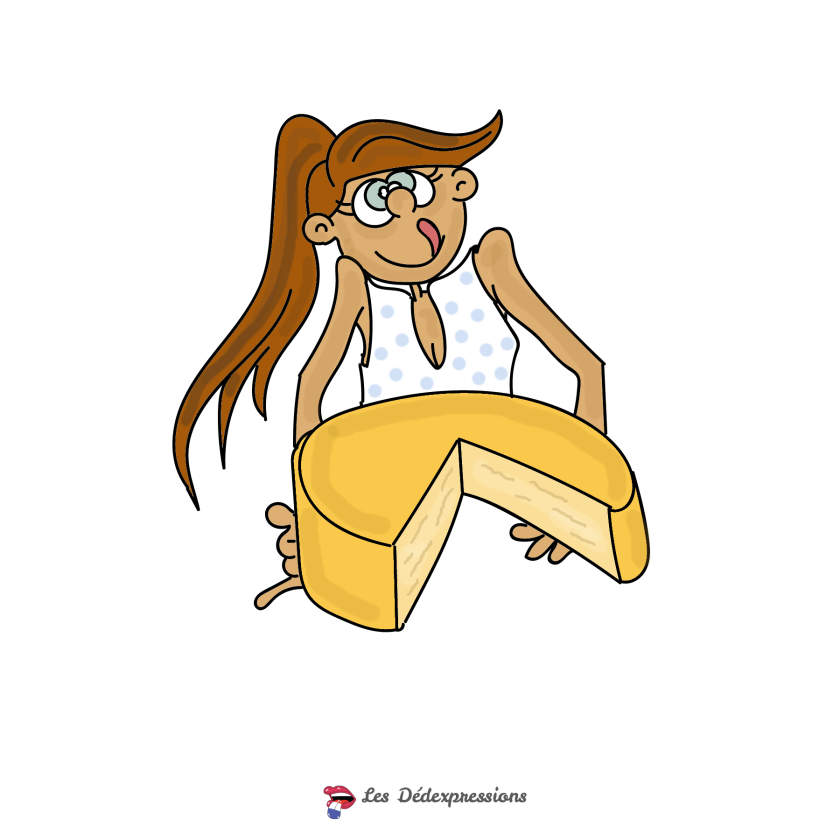
En faire tout un fromage
To “make a big deal out of something ” the French “make a whole cheese about it”, of course!
Starting from not much (milk) we can get something very elaborate, requiring a certain know-how (cheese). Maybe someone who tends to make a big splash from the ground up could be a great master cheesemaker?
Engueuler quelqu’un comme du poisson pourri
The French don’t “give someone a tongue-lashing”, they “yell at them like they’re rotten fish”. To cut someone off they “make a fish tail” (“faire une queue de poisson“) or they “drown the fish” (“noyer le poisson“) to avoid a subject by talking about everything and anything else.
Tremper son biscuit
French men don’t “sleep around”, they “dip their biscuit”.
Ca n’a rien à voir avec la choucroute
The French do not say something “random”, they say something “that has nothing to do with sauerkraut”
Chanter comme une casserole
“Sing like a saucepan“, told to someone that can’t sing or sing flat.
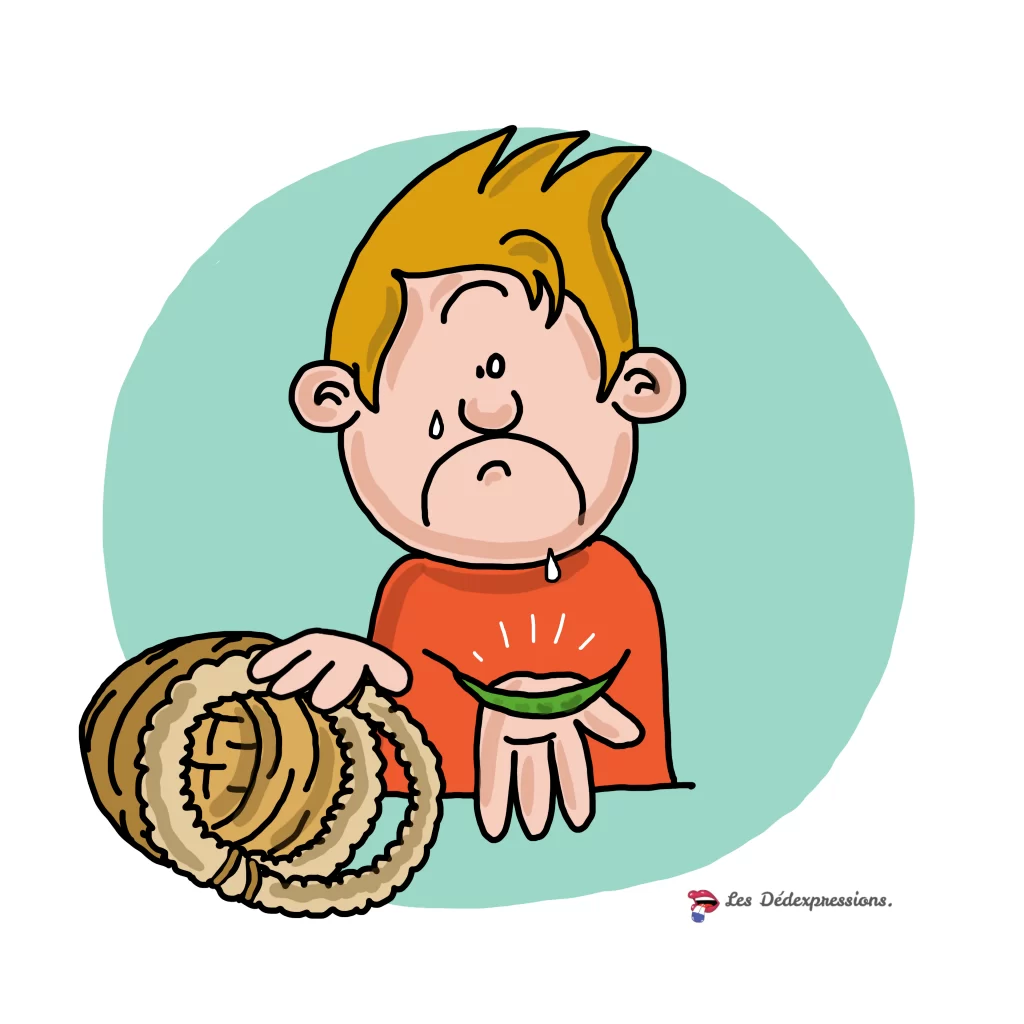
C’est la fin des haricots
When nothing more can be done and it’s game over, “it’s the end of the beans“.
The beans, low-end foods were distributed in boarding schools to schoolchildren as meals, in prisons to prisoners or to people too poor to buy better quality food. When they didn’t even have the money to buy those starches, it really became the end of it all.
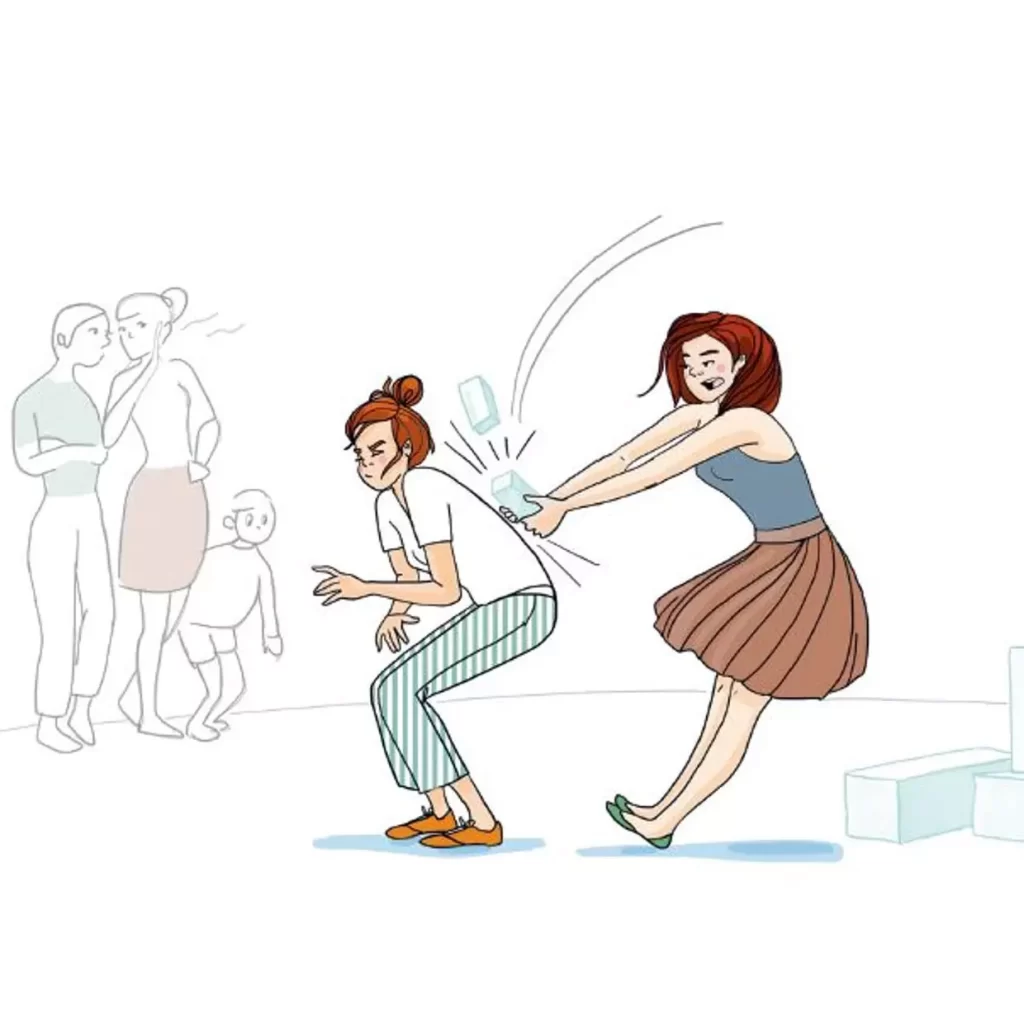
Casser du sucre sur le dos
Literally, “breaking sugar on the back“, it means to criticize someone that is not present. In the 19th century, “sucre” (sugar) in slang meant to mistreat. Nowadays the verb “sucrer” means “to get robbed”.
Ça ne mange pas de pain
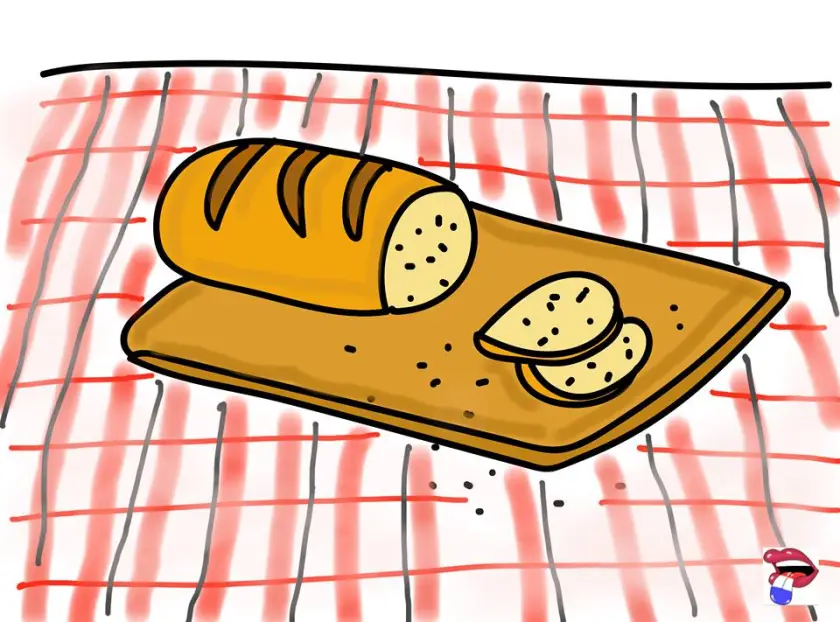
“It doesn’t eat bread“, an idiom to express that an action is easy to make. It comes from the 17th century when bread had much bigger importance in French society since it represented the main expense for the food budget. Saying it meant that buying an object for example won’t be deduced from the bread budget meaning it costs nothing.
Avoir du pain sur la planche
“Having bread on the board” is used when a person has some work to, dating back to the time when convicts had to work in exchange for free food, in that case, bread.
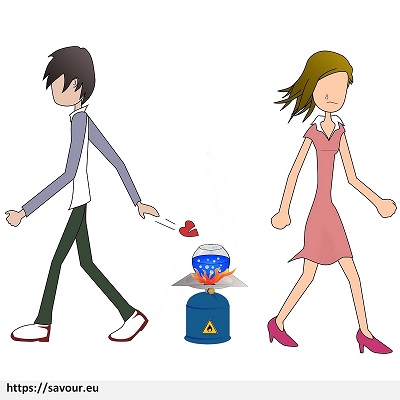
Il y a de l’eau dans le gaz
“There is water in the gas“, an idiom that describes a situation with some tension. It is used when there is a clash, an argument in a couple, for example. In the 19th century, for domestic needs, households began to be supplied with gas that contained a fairly high level of water vapor that could cause small explosions and make the flame flicker or even extinguish it.
Vouloir le beurre et l’argent du beurre
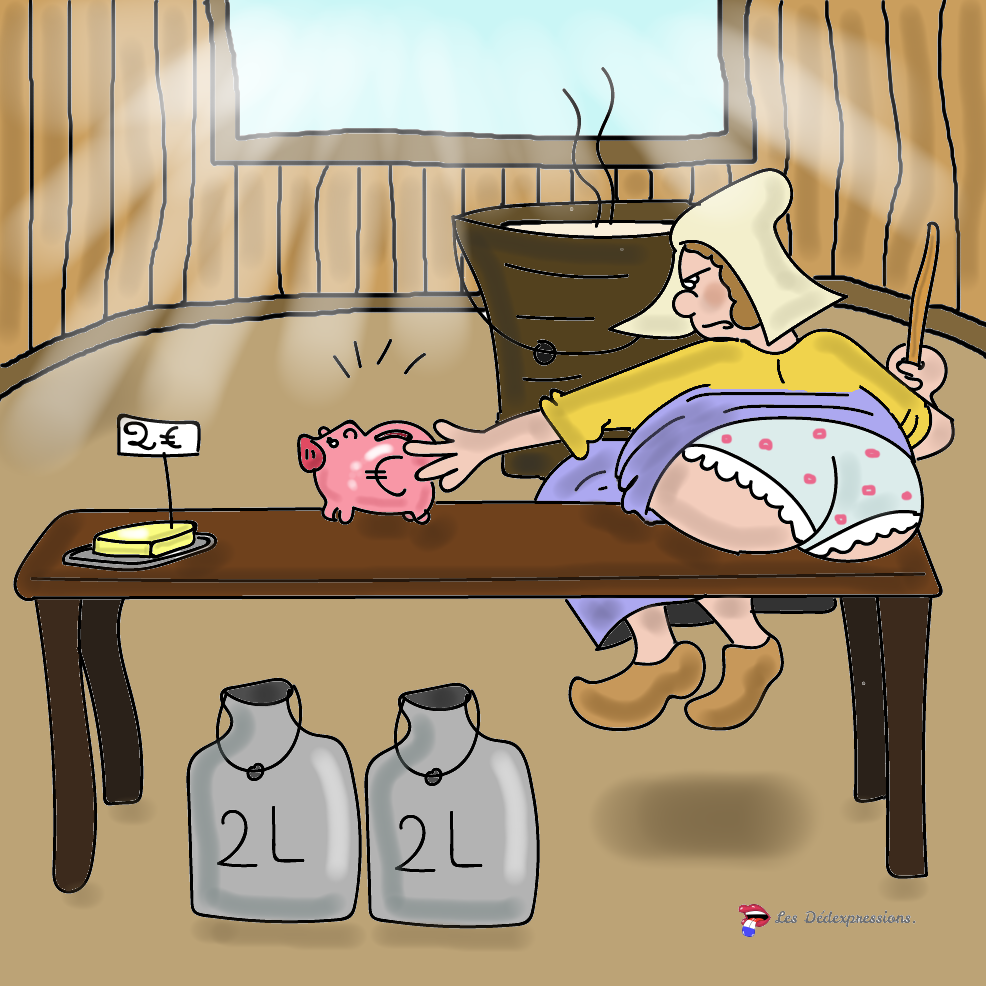
Literally, to “want the butter and the butter money“, an idiom that expresses the fact that someone wants everything with only the pros and not the cons. In English, it would be “have your cake and eat it too”. There is a colloquial joke with this expression, the French tend to add at the end “et le cul de la crémière” translated into English gives, “and the milk lady’s ass“.
Compter pour du beurre
“Counting for butter“, another expression with butter commonly used when someone is being ignored, not given importance.
Mettre du beurre dans les épinards
A third French idiom with butter, “to put butter in the spinach“, means that the person manages to improve his living conditions and earn more money.
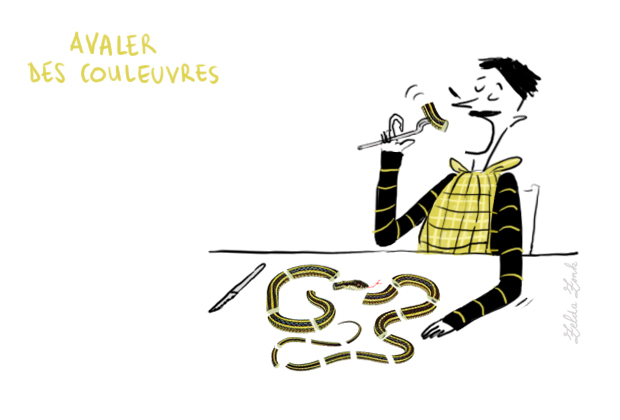
Comme un coq en pâte
Living “like a rooster on paste” means that you’re having a good life, as a long time ago the rooster was moved with a lot of precautions and was quite comfy.
Avaler des couleuvres
Even though “swallowing a snake” is not a common eating habit, I added it in the “food” list to indicate someone that is a dumb bunny.
French don’t talk only about the 3 Fs “farts”, fashion and food”, they also use wonderful expressions such as “don’t push granny into the nettles” …
Faut pas pousser mamie dans les orties
to say “Don’t push it!” or…
Avoir le rire jaune
“Having the yellow laugh” when you’re forcing yourself to laugh. In religion, Judas was represented as wearing yellow or there is an expression not popular anymore that is “Être peint en jaune”, thus the negative connotation of the colour yellow.
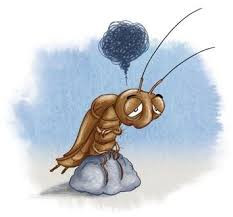
Avoir le cafard
When the French feel down, they don’t feel blue but they “have the cockroach“
Revenons à nos moutons
To go back to the original topic of conversation, French “go back to their sheep” and not to show up to your date, they put a rabbit (poser un lapin), dating back to the end of the 19th century, when lapin (rabbit) meant a refusal of payment.
Chercher midi à quatorze heure
“Look for noon at 2 p.m” is used when someone complicates things unnecessarily and sees difficulties where none exist. There is another super colloquial version with “on va pas tortiller du cul pour chier droit” meaning in English “we won’t wiggle our ass to shit straight”, funny one right?
Le jeu en vaut la chandelle
“The game is worth the candlelight“. In English, it would be a “simple” expression with “it’s worth the risk“. The origin of this expression dates back to the 16th century when electricity did not yet exist. Card and dice players then had to light the rooms by candlelight during their nightly games, which was very expensive at that time. So it was a luxury that participants were only willing to pay for in high stakes games. By winning, they could eventually pay back the high cost of lighting.
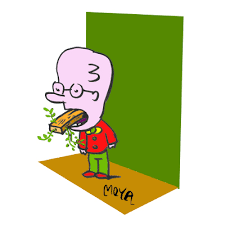
Avoir la langue de bois
You can often hear this expression in the news when a journalist is asking a politician not to speak with a “tongue of wood“. The expression qualifies a speech devoid of reality, which does not answer the problem posed.
Être rond comme une queue de pelle
When you’re drunk as a skunk, you’re round as a shovel handle.
Quand les poules auront des dents
“When the chickens will have teeth” is used to say that something will never ever happen. This French idiomatic expression is from the end of the 18th century. They also have a similar expression, “quand les poules pisseront“, “when the hens pee“.The equivalent in English would be “when pigs fly” which is a funny expression too.
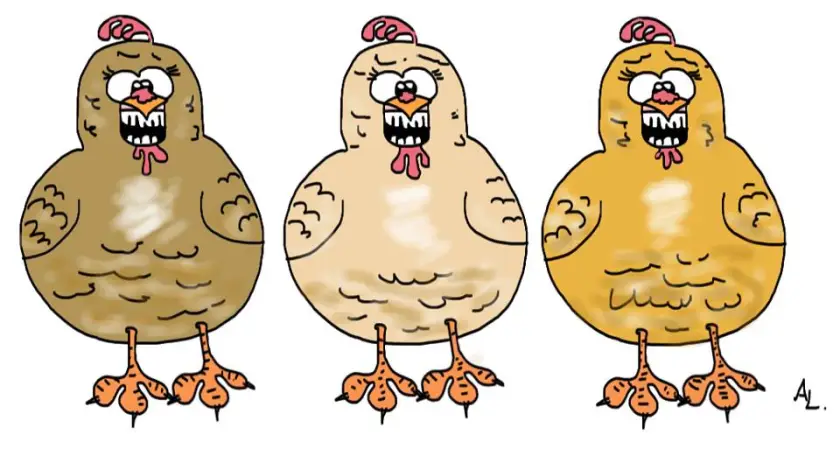
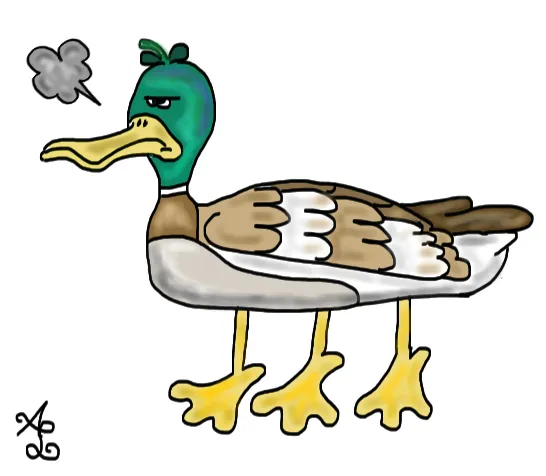
Ne pas casser trois pattes à un canard
You “don’t want to break three legs of a duck” when you’re doing something very easy. As you know, a duck has only two legs, making it impossible to break the three legs of a duck. There is another popular similar French saying that is “ce n’est pas la mer à boire” translated into English “it’s not the sea to drink“.
Il n’y a pas le feu au lac

There is no need to rush, it can wait for later. At first, the expression was simply “there is no fire”. Then, later on, the French add the absurdity “at the lake” to make fun of the Swiss, their neighborhood. The French tend to think that the Swiss are slow because of their accent. The lake in that case was a reference to lake Geneva (lac Léman) a famous symbol of Switzerland. French humor!
Chercher la petite bête
“Looking for the little beast” as when a person has head lice and someone else needs to look for those little insects, that is when a person is trying hard to discover an error or is being picky.
Last but not least, another wonderful expression …
Il fait un froid de canard
“It’s as cold as a duck“, probably coming from the duck hunt, when hunters have to do it in autumn and most of the time they stay for hours in the cold to be able to shoot the poor animal.
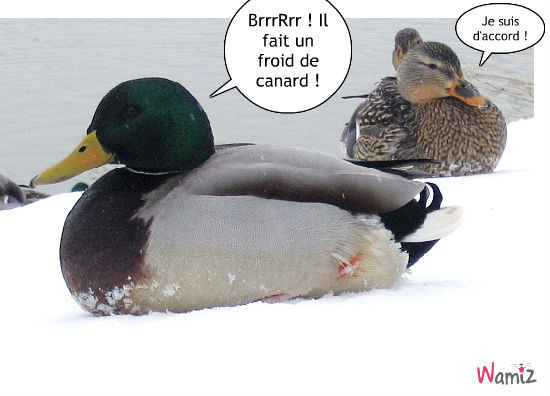
Now you might be able to understand French better when you visit the country or speak with a French.
By the way, what is your favorite French expression? You can write it in the comment below and I might add it to this list.
You can also take a look at this French website, Les Dédexpressions, from whom many images are taken.



